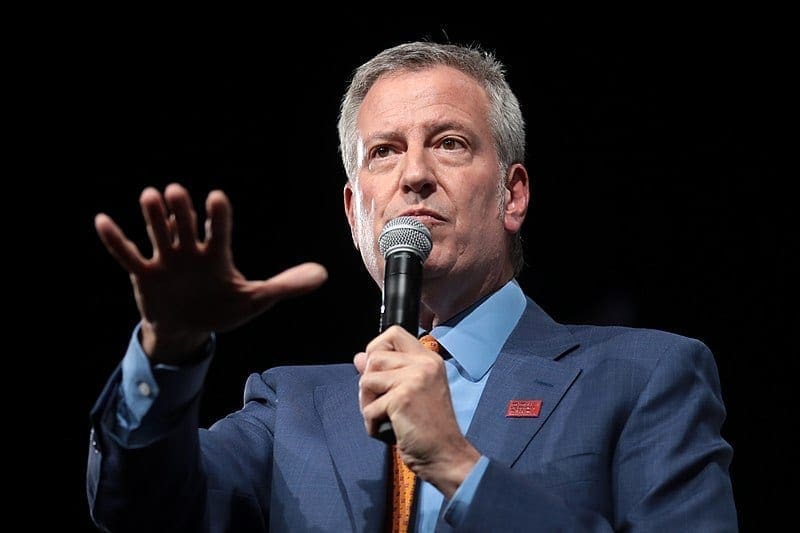On March 14, 2020, New York City Mayor Bill de Blasio called for the nationalization of certain industries to tackle the novel coronavirus that has been spreading across the globe. De Blasio went on MSNBC to chat with news host Joy Reid to make the case for radical government action.

“Here’s the reality. This is a war-like situation. We’re in a wartime scenario with a Mar-a-Lago attitude being used by the federal government. It’s so laid back, and I don’t understand it,” he told Reid.
“By the way, testing. How about ventilators? Where is the federal government making sure our hospitals have the ventilators we’re going to need? Where is the federal government when it comes to surgical masks, getting them distributed? This is a case for a nationalization of crucial factories and industries – literally a nationalization – that could produce the medical supplies to prepare this country for what we need.”
In the face of the coronavirus outbreak, New York Governor Andrew Cuomo was able to enlist state prisoners to produce hand sanitizer. For de Blasio, however, this strategy is only one piece of the puzzle in effectively fighting the coronavirus.
“The point I’m saying is the federal government should recognize this is a crucial part of stopping this. There should be a national approach to ensuring every factory that can make hand sanitizer should be on 24/7 shifts and the distribution should go to the places that need it most,” the mayor remarked. “We’re not into the discussion because we can’t even get the testing.”
Nationalizing “crucial factories and industries” is textbook top-down socialism, as private property is seized by the state in a desperate attempt to stave off a crisis. One can make a good case for state governments and local entities taking necessary steps to curb transmission of the virus in their jurisdictions. However, using this outbreak to engage in outright nationalization is a clear example of a power grab.
Economist Ludwig von Mises offered powerful insights about the authoritarian nature of central planning. It is one of the great enablers of authoritarian dictatorship, given how conceited some politicians are. They think they know what’s best for a country, as opposed to free individuals and the subsidiary institutions they form. Mises observed the following in his book, Planned Chaos:
The planner is a potential dictator who wants to deprive all other people of the power to plan and act according to their own plans. He aims at one thing only: the exclusive absolute preeminence of his own plan.
One would think that the fall of the Soviet Union and China’s transition from economic Maoism would have put these disastrous ideas to rest. However, there appears to be a residual acceptance among a section of the population who still believes in the economic authoritarianism of these failed schemes. A potential nationalization of certain American industries could create severe economic dislocations, resulting in the inefficient allocation of essential goods and services that would otherwise be provided under normal market circumstances. A better approach would be to keep the private sector intact and let them cooperate with all levels of government to stem the crisis.
Economic education continues to be necessary in order to not repeat the mistakes of the past. In the meantime, civil society, companies, and local and state governments should work as hard as possible to stop the spread of this virus. Nevertheless, we should be leery of any politician who is using this crisis to promote certain forms of government overreach.

























